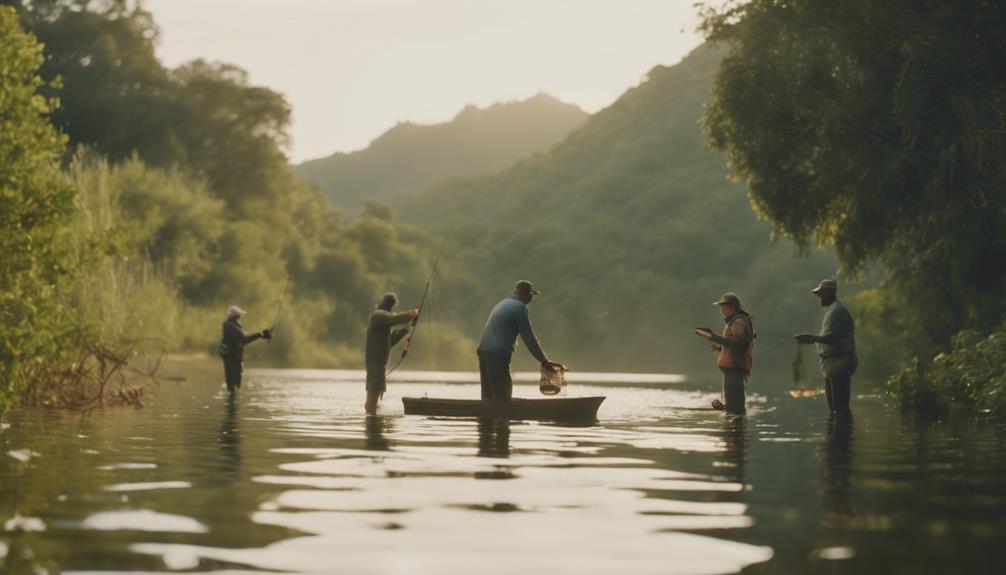Fishing is a pastime enjoyed by millions around the globe, but the question remains: is fishing a sport? This article delves into the nuances of fishing, examining its classification as a sport, recreational activity, and even a form of art. By the end, you’ll have a clearer understanding of fishing’s place in the world of sports and leisure.
Understanding the Definition of Sport
To determine whether fishing qualifies as a sport, we must first explore the definition of “sport.” According to the Oxford English Dictionary, a sport is a physical activity that involves skill, competition, and often a set of rules. Traditional sports include activities like soccer, basketball, and tennis, which typically involve teams or individual competitors pitted against each other. In contrast, fishing often appears solitary or social without the structured competition typical of other sports. However, this does not preclude fishing from being classified as a sport. Many organized fishing tournaments take place, where anglers compete for prizes based on the size and number of fish caught. Thus, fishing can indeed fit within the broader definition of a sport.
The Skills Involved in Fishing
While some may dismiss fishing as merely a leisurely activity, the skills required for successful angling are profound. To be an effective angler, one must master a variety of techniques, including casting, bait selection, and understanding fish behavior. Knowledge about different fishing gear, knots, and rigging setups is crucial. Moreover, successful fishing requires patience, focus, and strategic thinking—qualities that are also essential in many traditional sports. By honing these skills over time, anglers can improve their catch rates and overall fishing experience, further solidifying the notion that fishing is indeed a sport.
The Competitive Nature of Fishing
One of the defining characteristics of a sport is competition. Fishing may often be seen as a solitary pursuit, but it also has a robust competitive aspect. Numerous fishing tournaments and competitions take place worldwide, from local contests to prestigious events such as the Bassmaster Classic. These competitions often have specific rules and regulations, where participants compete against one another to catch the largest or most fish within a given timeframe. This competitive nature underscores fishing’s classification as a sport, as it involves not just skill but also the thrill of competition.
The Physical Demands of Fishing
Although fishing may not be as physically demanding as sports like soccer or basketball, it still requires a certain level of physical fitness. Anglers often spend several hours standing on a boat, casting, reeling in fish, and maneuvering through various terrains while setting up equipment. This physical aspect can lead to muscle fatigue and requires stamina. Additionally, certain forms of fishing, like surfcasting or fly fishing, can be particularly strenuous. Therefore, while fishing may not demand the same level of endurance as traditional sports, it certainly involves physical effort and can be classified as a sport due to these demands.
The Mental Aspect of Fishing
Fishing is not only a physical activity; it is also a mental challenge. Successful anglers must possess a deep understanding of environmental factors such as weather patterns, water temperatures, and seasonal fish behaviors. Making real-time decisions based on changing conditions is essential for a good catch. This mental engagement parallels many traditional sports, where strategy and quick thinking play critical roles in performance. Thus, the mental acuity needed in fishing further supports its classification as a sport.
The Community and Culture of Fishing
The community surrounding fishing plays a significant role in its classification as a sport. Fishing clubs, online forums, and social media groups connect anglers worldwide, fostering a sense of belonging and shared passion. These communities often organize events and tournaments, providing opportunities for friendly competition and knowledge sharing. The culture of fishing, with its rich history and traditions, mirrors that of other sports, where camaraderie and community engagement are vital components.
The Therapeutic Benefits of Fishing
While fishing is often debated as a sport, its therapeutic benefits cannot be overlooked. Many anglers find solace and relaxation in the activity, using it as a means to escape the pressures of daily life. This mental health aspect of fishing can be as valuable as any competitive element. Research has shown that spending time in nature can reduce stress, improve mood, and enhance overall well-being. Thus, while fishing may compete with other sports in terms of competitiveness, it provides unique emotional and psychological advantages that can contribute to a person’s overall health.
Conclusion: Fishing as a Multifaceted Sport
In conclusion, fishing can undoubtedly be classified as a sport, albeit a multifaceted one. It encompasses various skills, competitive elements, and physical and mental challenges. The community culture and therapeutic benefits associated with fishing further enrich its classification. Whether you’re a casual angler or a competitive fisherman, the essence of fishing as a sport is evident. So, the next time someone asks, “Is fishing a sport?” you can confidently affirm that it is—an activity that combines competition, skill, community, and well-being in a unique and rewarding way.
By understanding the various dimensions of fishing, we can appreciate its significance not just as a leisure activity but as a legitimate sport that has captivated countless individuals for generations. Whether you seek relaxation or competition, fishing offers a unique blend of experiences that makes it a beloved pastime for many.
